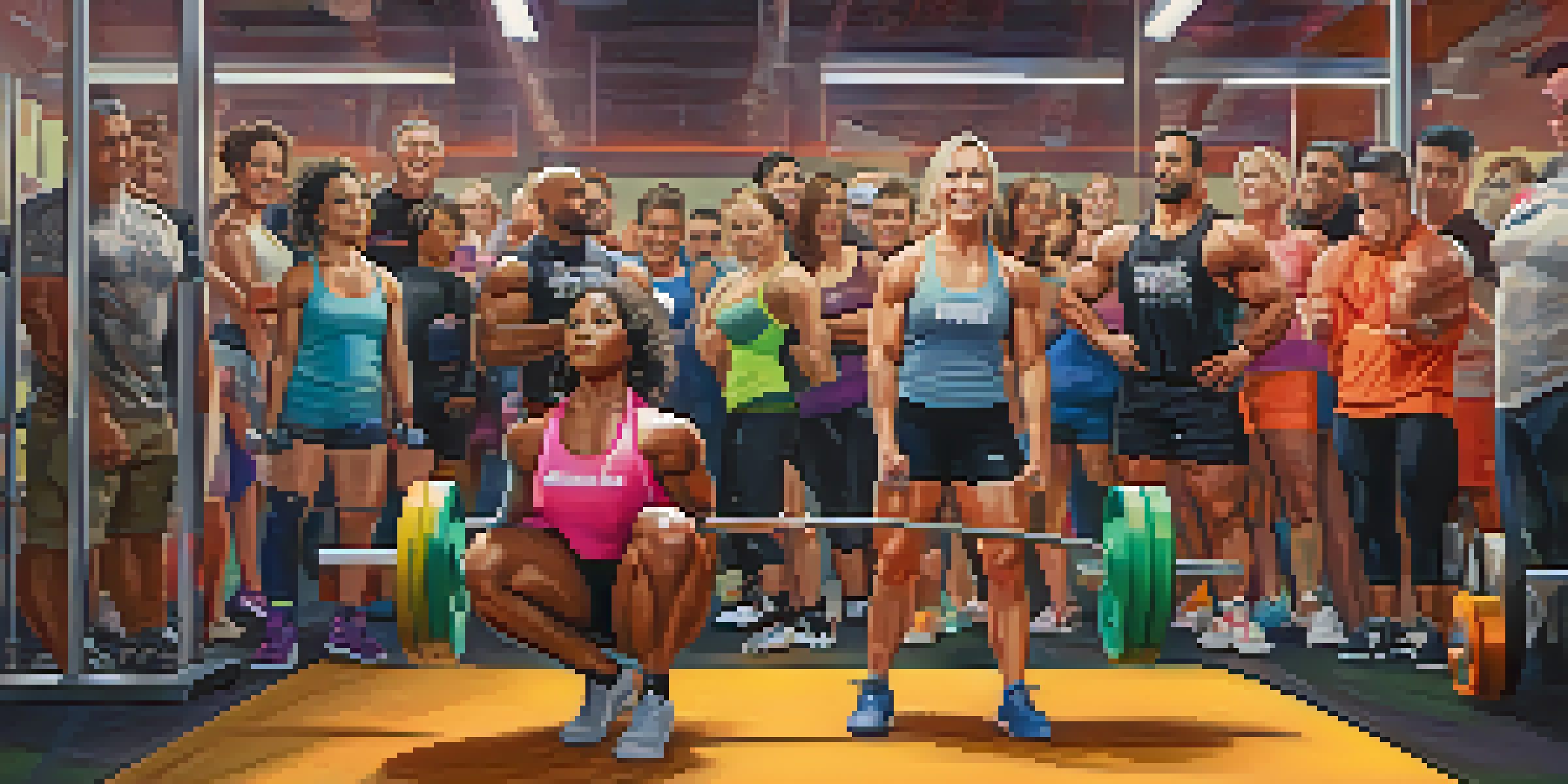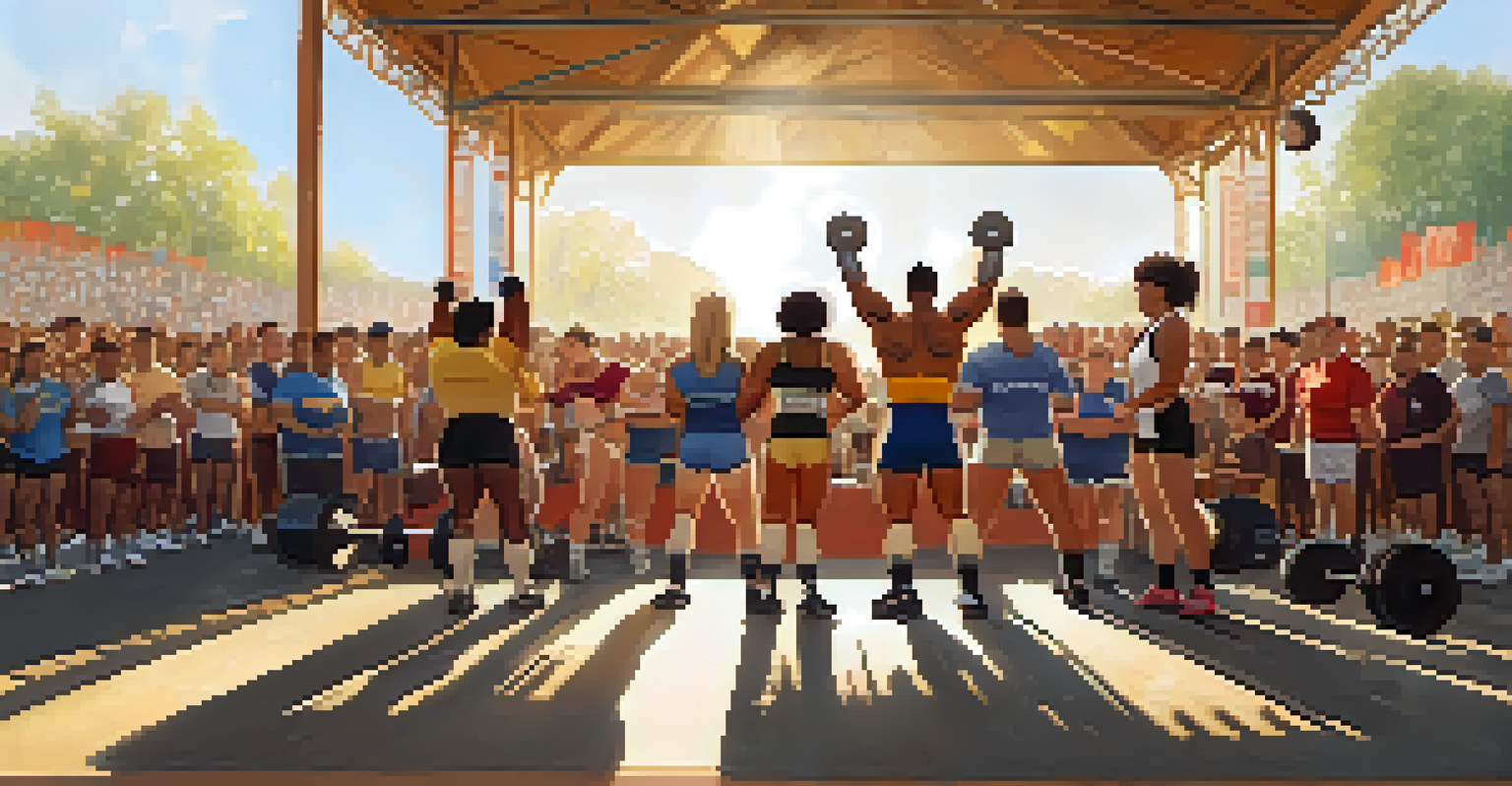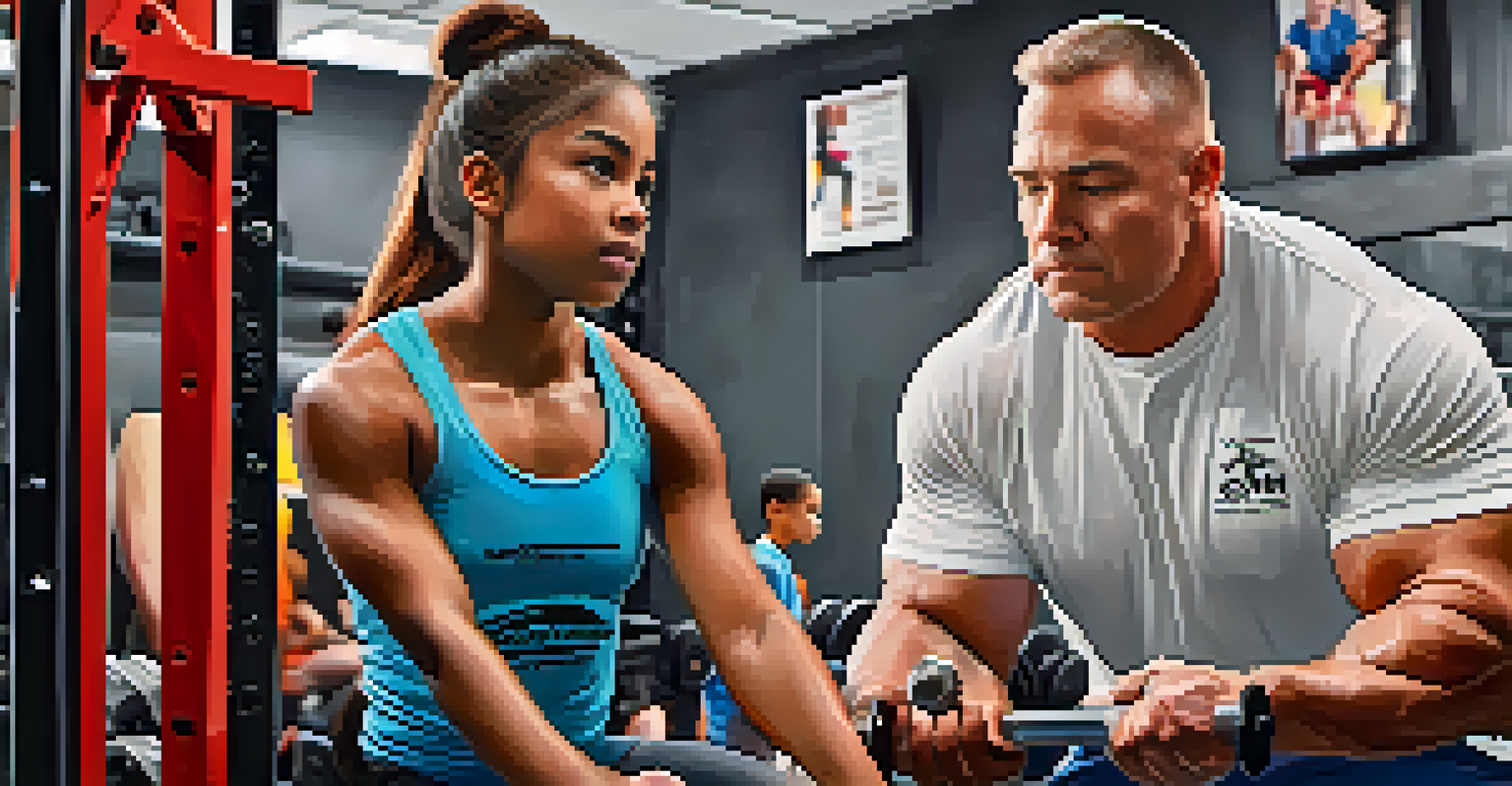Diversity in Powerlifting: Expanding Athlete Representation

Understanding Diversity in Powerlifting
Diversity in powerlifting encompasses various aspects, including gender, race, age, and body types. It’s about bringing together athletes from all walks of life to create a richer, more inclusive sport. When we talk about diversity, we’re not just focusing on numbers; we’re considering the unique perspectives and experiences each athlete brings to the platform.
Diversity is not about how we differ. Diversity is about embracing one another's uniqueness.
In a sport like powerlifting, where strength and skill are paramount, it’s crucial to recognize that talent exists in every community. By expanding our definition of who can be a powerlifter, we cultivate an environment where everyone feels welcome to participate. This not only enhances the sport itself but also fosters a sense of belonging among athletes.
Moreover, embracing diversity can lead to new strategies and techniques in training and competition. Each athlete learns from one another, and this exchange of ideas can contribute to innovation in powerlifting. Ultimately, a diverse field of competitors enriches the experience for everyone involved.
The Benefits of Diverse Representation
A more diverse powerlifting community can lead to increased participation rates. When aspiring lifters see people like themselves competing at high levels, they are more likely to believe that they too can succeed. This representation is vital for inspiring the next generation of athletes and ensuring that powerlifting continues to grow.

Moreover, diverse representation can enhance the sport's visibility. The stories and journeys of various athletes resonate with wider audiences, bringing attention to powerlifting as an inclusive sport. This visibility can attract sponsors and media coverage, providing greater opportunities for all athletes involved.
Diversity Enriches Powerlifting
Embracing diversity in powerlifting enhances the sport by fostering inclusion and bringing unique perspectives to the platform.
In addition, diverse voices contribute to a richer dialogue about the sport. By sharing different experiences and perspectives, athletes can challenge stereotypes and break down barriers within the lifting community. This dialogue not only benefits the athletes but also enhances the overall culture of powerlifting.
Challenges Faced by Underrepresented Groups
Despite the progress made, many underrepresented groups still face significant challenges in powerlifting. These can include limited access to training facilities, lack of representation in competitions, and financial barriers. Addressing these challenges is essential for creating a truly inclusive environment.
Strength lies in differences, not in similarities.
Another challenge is the societal perceptions surrounding strength sports. Often, stereotypes about who can be a powerlifter can discourage individuals from participating. Combatting these stereotypes requires a concerted effort from the community to celebrate athletes of all backgrounds and body types.
Additionally, there can be a lack of mentorship for aspiring lifters from diverse backgrounds. Establishing mentorship programs can provide guidance and support, helping these athletes navigate their powerlifting journeys. By fostering connections, we can empower the next generation to thrive in the sport.
Initiatives Promoting Diversity in Powerlifting
Several organizations are actively working to promote diversity in powerlifting through various initiatives. These programs aim to provide resources, training, and support for underrepresented groups, ensuring they have the opportunities to excel. These initiatives demonstrate that the powerlifting community is committed to making meaningful changes.
Events and competitions that focus on inclusivity are being organized to highlight diverse athletes. These competitions not only showcase talent but also create a supportive environment where everyone can feel comfortable. By prioritizing diversity in these events, organizers are signaling that powerlifting is for everyone.
Representation Inspires Participation
Diverse representation in powerlifting motivates aspiring athletes to believe in their potential and contributes to the sport's growth.
Furthermore, educational programs are being developed to raise awareness about the importance of diversity within the sport. These programs can help current lifters, coaches, and officials understand the challenges faced by underrepresented groups, fostering a more inclusive culture. Education is key to building empathy and understanding within the powerlifting community.
Community Support and Engagement
Community support plays a crucial role in promoting diversity in powerlifting. Local gyms and clubs can create inclusive environments by encouraging athletes from diverse backgrounds to join and compete. By fostering an atmosphere of acceptance and collaboration, these communities can help break down barriers and build connections.
Engagement with local organizations and schools can also introduce powerlifting to a broader audience. By hosting workshops and demonstrations, powerlifting clubs can attract newcomers who may not have previously considered the sport. This grassroots approach is essential for expanding participation and representation.
Moreover, social media has become a powerful tool for athletes to share their experiences and connect with others. By highlighting diverse athletes and their journeys, the community can raise awareness and celebrate the achievements of all lifters. This visibility not only inspires others but also reinforces the message that powerlifting is for everyone.
The Role of Coaches and Mentors
Coaches and mentors play a pivotal role in fostering diversity within powerlifting. By creating an inclusive training environment, they can encourage athletes from all backgrounds to pursue their goals. Their support can make a significant difference in the confidence and success of underrepresented lifters.
Mentorship programs can also provide valuable guidance for new athletes. Experienced lifters can share their knowledge and help demystify the competitive process, making it more accessible for everyone. This support system is essential for nurturing talent and ensuring that all athletes feel equipped to succeed.
Mentorship Supports Underrepresented Lifters
Establishing mentorship programs is crucial for guiding diverse athletes through their powerlifting journeys and empowering their success.
Furthermore, coaches can advocate for diversity within the sport by promoting inclusive practices in their gyms and teams. By prioritizing representation and actively seeking to elevate diverse voices, coaches can help shift the culture of powerlifting toward a more equitable future.
Looking Ahead: A Diverse Future in Powerlifting
The future of powerlifting hinges on our commitment to diversity and inclusion. As more athletes from varied backgrounds step onto the platform, we can expect richer narratives and stronger community bonds. This evolution can only serve to enhance the sport, making it more vibrant and engaging for everyone involved.
Continued efforts to address the challenges faced by underrepresented groups will be essential. By ensuring equitable access to resources and opportunities, we can create an environment where every athlete has the chance to thrive. This commitment to inclusion will help powerlifting grow and evolve in exciting ways.

Ultimately, a diverse powerlifting community benefits everyone. By embracing different perspectives and experiences, we can cultivate a culture of support, innovation, and excellence. Together, we can ensure that powerlifting remains a sport that welcomes all athletes, regardless of their background.